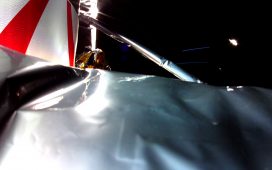The US National Security Agency (NSA) is rebuffing efforts by a leading Congressional critic to determine whether it is continuing to place so-called back doors into commercial technology products, in a controversial practice that critics say damages both US. industry and national security.
The NSA has long sought agreements with technology companies under which they would build special access for the spy agency into their products, according to disclosures by former NSA contractor Edward Snowden.
These so-called back doors enable the NSA and other agencies to scan large amounts of traffic without a warrant.
Agency advocates say the practice has eased collection of vital intelligence in other countries, including intercepting terrorist communications.
The agency developed new rules for such practices after the Snowden leaks in order to reduce the chances of exposure and compromise, three former intelligence officials told Reuters. But aides to Senator Ron Wyden, a leading Democrat on the Senate Intelligence Committee, say the NSA has stonewalled on providing even the gist of the new guidelines.
“Secret encryption back doors are a threat to national security and the safety of our families. It’s only a matter of time before foreign hackers or criminals exploit them in ways that undermine American national security,” Mr Wyden told Reuters.
“The government shouldn’t have any role in planting secret back doors in encryption technology used by Americans.”
The agency declined to say how it had updated its policies on obtaining special access to commercial products. NSA officials said the agency has been rebuilding trust with the private sector through such measures as offering warnings about software flaws.
“At NSA, it’s common practice to constantly assess processes to identify and determine best practices,” said Anne Neuberger, who heads NSA’s year-old Cybersecurity Directorate. “We don’t share specific processes and procedures.”
Reuters






